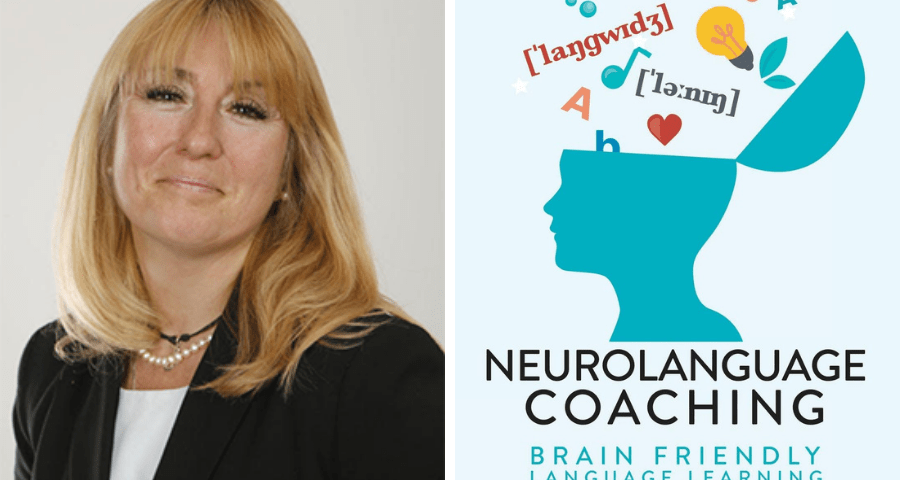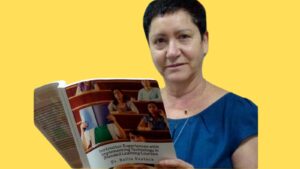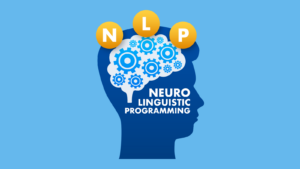Interview with Rachel Paling
Rachel, first of all, many thanks for taking time out of your unbelievably busy schedule to do this interview. It’s only May, and I believe you have already visited a great many countries as a promoter of brain-friendly learning.
Yes, so far this year, I certainly have done a lot of flying. It has been amazing to visit Santa Cruz, Bolivia, Lisbon, London, France, Florida, Liverpool, Edinburgh and Buenos Aires.
As you know, I am kept very busy as editor of this magazine, but I like to keep my hand in by doing a bit of EFL teaching from time to time, and so I was delighted to be able to come to London in February this year and take your Neurolanguage Coaching Course myself. I have so much to say about it, but could we first start way back and discuss what brought you to the point where you decided to spend your professional life concentrating more on the brain and brain-friendly coaching? Where did your EFL journey start? Like so many teachers in EFL did you set out to be a teacher or did you fall into it?
Rachel Paling on Building Her Coaching Company, International Conference, and Education Foundation
Well, in fact, my journey started when I fell in love with a Spaniard at the age of 15. Two years later in 1983, I moved to Spain. In those two years between the ages of 15 and 17 I taught myself to read and write Spanish and then when I moved there I transformed my written in spoken language. We married the year after and I began working in a school for adults teaching English. Obviously, I was new to teaching and this was really the start of the EFL journey for me.
Did you stay in Spain for a long time?
I lived in Spain for 12 years – I was at the school for about 4 years and then went on to do other things, gaining different work experience and even running a business with my husband, but always in the background, I was teaching private clients as well. Then, in 1991, I took a long distance access to a university exam in Spanish with the UNED Madrid (very grateful to my brother-in-law for really pushing me to do that) and then began a law degree also with the UNED in Spanish. In 1995, I moved back to the UK and continued studying a BA in Law and Spanish at Sheffield University.
Harrison Fowler on Founding RVF International
Did you go straight into law after university?
Actually, I didn’t. By then I was passionate about Human Rights and so I decided to do a Masters in Human Rights and Democratisation which is, in fact, a special programme with a consortium of European Universities. This took me to Venice, Italy and Bochum, Germany and throughout my studies, I was again teaching English in the background. In Germany, I began working for a school that focused on business English and I began working in corporates doing both business and legal English. The owner wanted me to stay after I finished the MA, but I was determined to continue and become a fully fledged lawyer. So I returned to the UK to do my PG Diploma in law and then in 2001, I started to train to be a lawyer in a law firm in Bristol.
Did you qualify as a lawyer?
I did. But by then my mind was starting to concentrate on the other things in my life: my love of languages, my love for teaching, my love of travelling. My study and love of Human Rights law had set me on another path, and now I wanted to explore more about how humans treated and interacted with each other and how people reacted in certain situations. I started to think about what triggered reactions and why so many reactions were negative. I also felt that understanding was not enough and that I wanted to help people to understand these reactions and so to understand and be gentle with their own brains and the brains of others. Perhaps this was the beginning of my understanding of compassion.
So, unwilling to carry on as a lawyer what did you do?
Well, I contacted the school I had worked with in Germany and they welcomed me back. With open arms. I helped them to develop business and legal English courses for corporates and in addition, I was accepted as visiting lecturer for legal English at the Faculty of Law in Verona, Italy.
From 2003 to 2009 my life became a regular commute between Germany and Italy, working with Corporates from Tuesday to Friday and then at the university in Verona on Monday.
You were now lecturing in Verona and teaching English in Germany, so where did the idea of coaching come from?
Already back in the year 2000, the owner of the school in Germany had said he wanted me to be a language coach as he had done an MA with an element of coaching in it and wanted to develop this. However, when I asked what he really meant bu coaching, he simply told me to tailor the course to the client. I instinctively felt there was more to caching and so I decided to train myself to become a life coach and took various coaching courses over 4 – 5 years, some of which were brain-based coaching training and I became a certified ACC coach with the International Coaching Federation.
Language Coaching in Your ESL Classes
Clearly, you were starting on your path to discovering language coaching.
I certainly was and the years between 2003 and 2009 were an interesting period. This was the time when I was testing and trying to see what could be applied to language learning. I felt strongly that there was massive room for improvement in the methods of teaching as we knew them. I felt strongly that the brain had been very much neglected in the learning process and I wanted to introduce a new way of teaching, a way based more on thought and consideration for the needs of the client and certainly based more on the way the client’s brain functioned and reacted to certain methods of teaching.
You talked about Italy and Germany and how you were “commuting” between them, is that where you picked up your Italian and German?
Yes, it was. I had done French, Latin and Greek at school, then Spanish and Catalan when I was living near Barcelona and then I developed the Italian and German too. I
How many languages do you speak now?
Quite a few. I did play a little bit with some Arabic some years ago and would love to get back into that and recently I have been trying to get into some Russian. Honestly, I love learning languages and if I had more time would really be immersed in the learning.
So, there you were between Germany and Italy, enjoying a good life, but your life turned another corner, could you tell us about that?
Yes, my life turned a massive corner. In 2009, I had a car crash, which thankfully was not too serious, but it forced me to reassess my life, and I decided to stop doing the commute to Italy. I had so much work in Germany and so I decided to really concentrate on my clients. In those years, I was developing more and more the concept of language coaching, but still, I would say without a clear definition. The crunch came when I had a really “difficult” meeting with a purchasing manager in a very big international company, who really could not understand the difference between coaching and teaching and at that point in 2010 I was still not able to adequately express the difference. After that meeting, I realised that the concept needed to be crystallised and that is when I really started to sit and create.
Louis von Ahn Interview with EFL Magazine
Was it the right decision?
Most definitely, because I was starting to develop some exciting ideas about teaching which would finally present me with a new perspective which encompasses the coaching aspects and the neuroscience aspects into language learning. I was starting to think more and more about my brain and the brains of my clients and how I could understand both more, as a way of producing more effective language training. Step by step I was starting to teach in a way which was more brain- friendly and more student centric, working more as a facilitator than as a teacher. In short, I was starting to develop my neurolanguage coaching and in 2012 I sat down for seven days and wrote the manual for the training and finally, it crystalised into something I could introduce to others as a new concept.
I had witnessed how students could block their own learning by being stressed or distracted and also related this to my own language learning journeys, seen students get frustrated and lose confidence and motivation and I wanted to find a remedy for this and find a way of teaching which would be more effective and potentially achieve better results in a quicker timeframe. I wanted faster and more noticeable results with happy students. And,I wanted a much more holistic approach to transferring knowledge.
Was it easy to develop the concept of Neurolanguage coaching ?
In the beginning, it really was not easy. As a one-woman show, pioneering something totally new, sometimes there was a lot of resistance. Some people really did not like the connection of language together with coaching, in particular in some countries like Germany, coaching was seen as a confidential process often with similarities to psychotherapy and in fact “professional coaches” often went through and perhaps still go through a 5 year diploma, to become a professional coach, this is totally different to the life coaching approach of the International Coach Federation. So, for many, it was and still is difficult to reconcile their own understanding and concept of coaching and then to bridge it into the area of language and my neurolanguage coaching.
That must have been very frustrating when you saw the potential for your learners with this new approach, so what did you do to change things?
I realized that this would need to be a step by step process, gradually bringing the new idea to the world and in 2012 I piloted the teacher training programme with my teachers and then started with the first courses online and face to face in Paris and in London. Slowly, through these last 7 years, Neurolanguage Coaching is now worldwide and there are nearly 400 Neurolanguage Coaches in countries all over the world.
So now could you please let us have some of those definitions to make it clear in our brains exactly what Neurolanguage coaching really is.
With pleasure. “Neurolanguage Coaching is the efficient and fast transfer of language knowledge from the Language Coach to the Language Coachee with sustainable effects facilitated by brain- based coaching and coaching principles.”
This was the rather academic definition that I created in 2012 and in essence, we are bringing the principles, competences, ethics and structure from professional coaching together with the principles and knowledge of neuroscience, cognitive psychotherapy and neuroeducation into the language learning process, really tailoring it to each and every learner wherever possible so that the learning potentially has a greater impact.
Succeeding as an English and Neurolanguage® Coach in Japan, with Emi Kamiya
Our world is changing rapidly. We now have more stress, definitely more distractions, attention spans are shorter, we have been pushed into systems and in many ways lost touch with ourselves. The teaching models which we have are over 100 years old and were developed for a whole different mindset, mostly the teacher taught and the students listened. As educators we now have to adapt to a new set of circumstances in order to be most useful to our students and in particular we have to get our learners from the passive to the active learner again – a little back like going back to the Socratic way of interaction.
So many people including myself couple neurolanguage learning with neuro lingusitic programing or NLP and so you’ll now not be surprised that I need you to explain the differences.
Honestly, I have never done NLP, so I am not an expert. From what I understand, NLP relates to our different perspectives and emotions but does not connect back to the neuroscience (although I hear that they are now starting to do this .I). NLP and normal life coaching have nothing to do with language learning. Neurolanguage coaching really brings in the awareness of the brain, so that the coach her/himself understands firstly themselves and their own coaching style and delivery, and then tries to assist the learner to find his/her own way of learning while constantly connecting the learner to the target language and the best way for them to learn this.
NLP and Its Use in the Classroom
You mentioned that you have trained nearly 400 neurolanguage coaches in many different countries, so the word is being spread. Could I ask therefore, what is next for you? Are you going to continue giving your training online and face to face and have you any more plans for the future?
Well, I will definitely be offering the training in more countries face to face, delivering to groups so that we can reach more people and make the course more price friendly for the different regions of the world. I am also developing more licensed teacher trainers of my course who will also be delivering in their own languages, so we will be able to reach teachers delivering different language combinations as Neurolanguage coaching can be used to coach in any language.
Personally, I am continuing to develop myself, learning more about my own brain and also undergoing studies in this field which I will reveal once I have completed them.
That sounds a bit mysterious, I will await your revelation with great anticipation, Rachael!
Finally, I am honoured to have been invited to giving at talk at your Neurolanguage Conference to be held in Portugal in May this year. I’ll be talking about my pet subject, charismatic leadership and how even in the 21st century, charm and charismatic behaviour can have an effect on our brains. Could you tell us a little about the conference and how it has come about?
Well, Sharyn, you know I am passionate about bringing learning into the 21st century and there are so many amazing eductors worldwide bringing in new ideas and new approaches and we are now starting to embrace the sciences to enhance learning. I do think that we are very much in the era of neuroeducation which actually was first coined back in the 1990s. My conference is about bringing together like- minded people who are interested in finding out how we can enhance the learning process and make it more effective and efficient.
Neuroscience
I am thrilled that you will be there along with speakers talking about neuroscience, neurofeedback, coaching, language learning, practical intelligence, emotional intelligence, leadership, learner authenticity etc etc. There are participants coming from all over the world, not only neurolanguage coaches but also educators of languages, other disciplines and even HR/L&D. And this conference is different ……all participants stay together all the way through – everyone has the same experience, no break-outs, no clashing of sessions, and the networking and feeling of togetherness is phenomenal! For more information, the website gives the background and the speakers´details. www.nllconference.com
Rachel, I want to thank you for doing this interview. I know neurolanguage training is a whole new ball game, as the Americans say, and it’s hard in a short interview to do it justice but what would you suggest for teachers who have I an interest in what you are doing?
With pleasure, they can connect with me on one of my live webinars, I love interacting with like-minded professionals who are perhaps intuitively already coming into the coaching approach. I also suggest that they read my book, Neurolanguage Coaching, Brain friendly language learning and take a look at my websites. That is the best way to get started and if they would like a personal call with me or one of my licensed trainers, with great pleasure, happy to connect.
www.languagecoachingcertification.com
www.efficientlanguagecoaching.com







